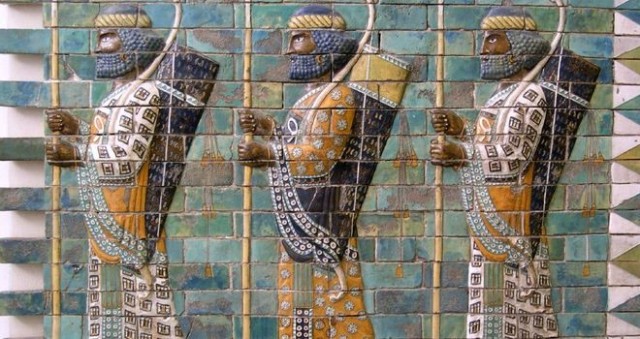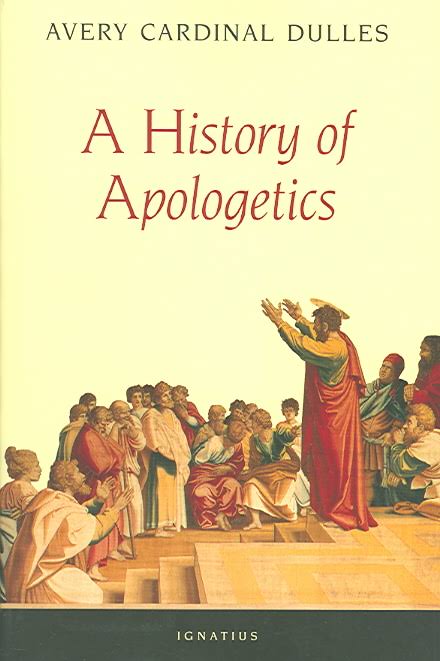
My goal in writing reflections from 1st Corinthians are the following: First, to encourage you the reader that if you will pay attention to the words on the page and listen carefully you will mine a lot of truth for life without the need of a commentary or any secondary source. That is, “take up and read” to enrich your soul Christian.
Second, I write to give you a model of how observations can be done in scripture that do not read into the text something foreign to the author’s intent. This will help you experience the joy of discovery and increase your confidence in your ability to comprehend God’s word.
Third, by doing the above my hope is that you will be able to hear God’s voice all the more clearly because it is the word of God that is forever settled in heaven, and not our subjective impressions however valid they may be. That is, we have a more sure word of prophecy according to Peter—meaning the inscripturated word of God—then a glorious experience we may claim to have (2 Peter 1:16-21). Too often we Christians have bizarre ideas of what “God” is supposedly speaking to us and when it contradicts the Bible, be assured we are not hearing his voice.
This first letter of Paul to the Corinthian church is one of his earliest writings, occasioned by internal strife among believers fueled by pride in the creature rather than the Creator:
“1 Paul, called as an apostle of Jesus Christ by the will of God, and Sosthenes our brother, 2 To the church of God which is at Corinth, to those who have been sanctified in Christ Jesus, saints by calling, with all who in every place call on the name of our Lord Jesus Christ, their Lord and ours: 3 Grace to you and peace from God our Father and the Lord Jesus Christ.
4 I thank my God always concerning you for the grace of God which was given you in Christ Jesus, 5 that in everything you were enriched in Him, in all speech and all knowledge, 6 even as the testimony concerning Christ was confirmed in you, 7 so that you are not lacking in any gift, awaiting eagerly the revelation of our Lord Jesus Christ, 8 who will also confirm you to the end, blameless in the day of our Lord Jesus Christ.9 God is faithful, through whom you were called into fellowship with His Son, Jesus Christ our Lord.” (Vvs.1-9)
These verses let us peer into several facts about the letter, the audience and the key issue at hand. First, as in all his letters, Paul establishes his credentials as sourced in God’s will (v.1), not mans’, so that his apostolic ministry is sanctioned by the Lord of the church not an earthly institution or movement. Why is this significant? Because unless one is sanctioned from above, they don’t have the authority to speak into how we come to understand God, love God, and walk humbly before God. Paul is saying, what I’m about to deliver to you comes from the uncreated Creator through the created creature.
Second, the audience is the church of God in Corinth which means that as Christ’s prized possession, through his shed blood on Calvary have been purchased by God’s mercy and grace and as such have been sanctified in Him (v.2). They are holy because Christ’s righteousness is theirs. Moreover, they are saints—holy ones—by calling which means that its’ utterly God’s choosing not theirs (i.e., they brought nothing into the relationship to fulfill this state of affairs) concerning their rescue from wrath.
Again, those called, call on the name of the Lord Jesus Christ which I take to mean that Jesus, because of his ontological status as Master, Shepherd, and God incarnate, is the source of all that is good.
Fourth, after describing who they are, Paul gives thanks for the grace the Corinthian church received evidenced in their speech, knowledge, and gifting (vvs.4-9) but something was amiss, there was internal strife. Paul states:
“10 Now I exhort you, brethren, by the name of our Lord Jesus Christ, that you all agree and that there be no divisions among you, but that you be made complete in the same mind and in the same judgment. 11 For I have been informed concerning you, my brethren, by Chloe’s people, that there are quarrels among you. 12 Now I mean this, that each one of you is saying, “I am of Paul,” and “I of Apollos,” and “I of Cephas,” and “I of Christ.” 13 Has Christ been divided? Paul was not crucified for you, was he? Or were you baptized in the name of Paul? 14 I thank God that I baptized none of you except Crispus and Gaius, 15 so that no one would say you were baptized in my name. 16 Now I did baptize also the household of Stephanas; beyond that, I do not know whether I baptized any other.” (Vvs.10-16)
Fifth, the apostle exhorts the believers not to divide among themselves over their favorite minister (e.g., Paul, Apollos, Cephas or Christ) as if they were anything special in one sense, (only Jesus Christ is redeemer and savior here, not his servants). These divisions which must stop are evidenced in quarrels which are caused by their pride. This problem is an overarching theme which influences what Paul says and how he says it throughout this letter.
Sixth, the contrast between the clever/foolish and between the wise/knowledgeable is also rife in the letter. Consider how after Paul explains that his call was to preach the gospel rather than to baptize believers (vvs.14-16) and to do this in a specific way that hits a nerve with these prideful believers:
“17 For Christ did not send me to baptize, but to preach the gospel, not in cleverness of speech, so that the cross of Christ would not be made void.”
It’s not as if Paul is denigrating the life of the mind, but for the apostle how Christ is preached, how the gospel is presented, is fundamental to what it accomplishes. If it rests on the cleverness of speech, it certainly will make the cross of Christ void. That is, for those who “come behind in no gift and are enriched in all speech and knowledge” (1:5), if they don’t plainly and clearly speak the truth of Christ’s cross, true conversions won’t occur.
Seventh, I don’t think Paul is calling for “dumbing down” the message so that its breadth, length, height and depth are stripped. Instead, what he is exposing here is the motive of pride which is the cause of why people reject the Gospel message. The preaching event involves the word of God, the preacher, the hearer and the response. Paul notes:
“18 For the word of the cross is foolishness to those who are perishing, but to us who are being saved it is the power of God. 19 For it is written, “I will destroy the wisdom of the wise, And the cleverness of the clever I will set aside.”
Here the same word is either devalued or valued. If devalued this word is unable to save from God’s wrath, that is those perishing can’t receive the message and thus be rescued. If valued, then the message utterly rescues those who embrace it for in it God’s power resides. The same word has two different effects; it has two different responses, but why?
I think the reason is found in the quote from Isaiah 29:14 which Paul cites (v.19). Here, the prophet indicts a people who honor God with their lips but whose hearts are far from Him. This refers to the Jews, the people of the book, who should have known better but did not. The result was judgment and destruction. The same end awaits Gentiles too.
Jesus applied this same text to the Pharisees when their hearts were hardened to his message and person. The main problem here as always, is that the word of men (i.e., tradition of washing of hands) wants to take precedence over the word of God (Mt. 15:1-9).
Paul in Romans (1:18-23) explains why God’s wrath is justly revealed and why men became fools: “they suppressed the truth of God in unrighteousness and thus become darkened in their understanding. They become fools.”
James also addresses this issue in (4:1-7) where the people because they don’t love God but the world instead, live as fools because of the swelling of their own pride.
Paul’s point here is that human wisdom when compared to God’s is foolish and the reason for this is because the knowledge of the Creator is necessarily both ontologically and epistemically superior to all created things. Ironically, the very foolishness of God in the preaching of the Cross of Christ is the remedy the Corinthian believers don’t see because of their blinding pride:
“19 For it is written, “I will destroy the wisdom of the wise, And the cleverness of the clever I will set aside.” 20 Where is the wise man? Where is the scribe? Where is the debater of this age? Has not God made foolish the wisdom of the world? 21 For since in the wisdom of God the world through its wisdom did not come to know God, God was well-pleased through the foolishness of the message preached to save those who believe.”
Of course, the world sees the Cross either as a stumbling block (for the Jew) or foolishness (for the Gentiles “every non-Jew”). The stumbling block is understood but not embraced, it is scandalous to Jews. The foolishness is understood but not welcomed because it’s not sophisticated enough for the “wise”.
This demonstrates human ignorance concerning ultimate issues and also explains our need for God to move on the minds and hearts of blinded people which is what takes place for the “called”. The “called” consist of both Jew and Gentile alike, who when hearing the message of the Cross love and embrace it, they see that it is—the wisdom and power of God:
“22 For indeed Jews ask for signs and Greeks search for wisdom; 23 but we preach Christ crucified, to Jews a stumbling block and to Gentiles foolishness, 24 but to those who are the called, both Jews and Greeks, Christ the power of God and the wisdom of God. 25 Because the foolishness of God is wiser than men, and the weakness of God is stronger than men.”
Paul continues explaining how God’s infinite superior knowledge, His epistemological prowess, supersedes the creatures finite limited knowledge and how in the simplicities and complexities of the cross God accomplished His purpose of “choosing” the proud while simultaneously crushing their arrogance:
“26 For consider your calling, brethren, that there were not many wise according to the flesh, not many mighty, not many noble; 27 but God has chosen the foolish things of the world to shame the wise, and God has chosen the weak things of the world to shame the things which are strong, 28 and the base things of the world and the despised God has chosen, the things that are not, so that He may nullify the things that are, 29 so that no man may boast before God.”
And just in case there’s any misunderstanding of how the Corinthians got saved, Paul continues:
“30 But by His doing you are in Christ Jesus, who became to us wisdom from God, and righteousness and sanctification, and redemption, 31 so that, just as it is written, “Let him who boasts, boast in the Lord.”
Human boasting is the highway to hell. The knowledge of God revealed to us through Christ Jesus tells us minimally the following things.
First, the knowledge of God reveals that our religious tradition is an epistemological one where we can come to know the Creator God through His son. Knowledge and specifically of God, is a necessary condition for salvation to obtain, though it is not sufficient.
Second, this knowledge is granted to us by God which means that it comes from outside of ourselves, it does not come from within the human being. The reason here is so that there will be no boasting before God. Moreover, this knowledge produces trust, or faith that results in rescue from God’s wrath.
Third, this understanding reveals the human malady of pride and the necessity of preaching the cross of Christ clearly and boldly so that many called may come into the kingdom. Human pride caused the “Fall” in the Garden of Eden and Sovereign grace has come to rectify that malady. May we not shy away from the foolishness or offense of the Cross due to our pride, instead may we along with Paul love it and cherish it as we endeavor to be salt and light in this dark world. Lord have mercy on us.
(SDG)







 The Patristic (Latin—Father) era of the Church historically describes the times and writings of the “Church Fathers”. During this time we see the end of the Apostolic age (i.e., Christ’s apostles) and one where their first disciples make a mark on their generation. Dulles points out that the main apologetic focus during this era tackled both the political and religious venues.
The Patristic (Latin—Father) era of the Church historically describes the times and writings of the “Church Fathers”. During this time we see the end of the Apostolic age (i.e., Christ’s apostles) and one where their first disciples make a mark on their generation. Dulles points out that the main apologetic focus during this era tackled both the political and religious venues.